Table of Contents
- 1. Protein Intake and Muscle Growth
- 2. Benefits of Protein in Muscle Building
- 3. Determining Your Protein Needs
- 4. Protein Intake in Relation to Calorie Intake
- 5. Protein Sources for Muscle Growth
- 6. Importance of Protein Timing
- 7. Protein Supplements for Muscle Building
1. Protein Intake and Muscle Growth
Understanding the relationship between protein intake and muscle growth is crucial for females who aspire to build muscle. This section explains the key factors to consider.
2. Benefits of Protein in Muscle Building
Learn about the numerous benefits of protein consumption for females engaged in muscle building, including enhanced muscle recovery, increased strength, and improved body composition.
Benefit 1: Muscle Repair and Growth
Protein is essential for muscle repair and growth. When you exercise, your muscles undergo stress and damage, and protein helps to repair and rebuild these tissues. Consuming an adequate amount of protein promotes muscle recovery, leading to improved muscle growth and strength.
Benefit 2: Increased Muscle Protein Synthesis
Protein is a key component in the process of muscle protein synthesis. This is the mechanism through which your body builds new proteins to repair and grow muscle tissue. By consuming enough protein, you can stimulate muscle protein synthesis and enhance your muscle-building capabilities.
How much protein is needed for muscle building in females?
The protein requirements for muscle building in females vary depending on several factors such as body weight, activity level, and fitness goals. One common approach is to consume around 0.8-1 gram of protein per pound of body weight per day. However, it is important to consult with a healthcare professional or a registered dietitian to determine the exact protein needs based on individual factors.
Protein Calculator:
Use our protein calculator to estimate your daily protein needs:
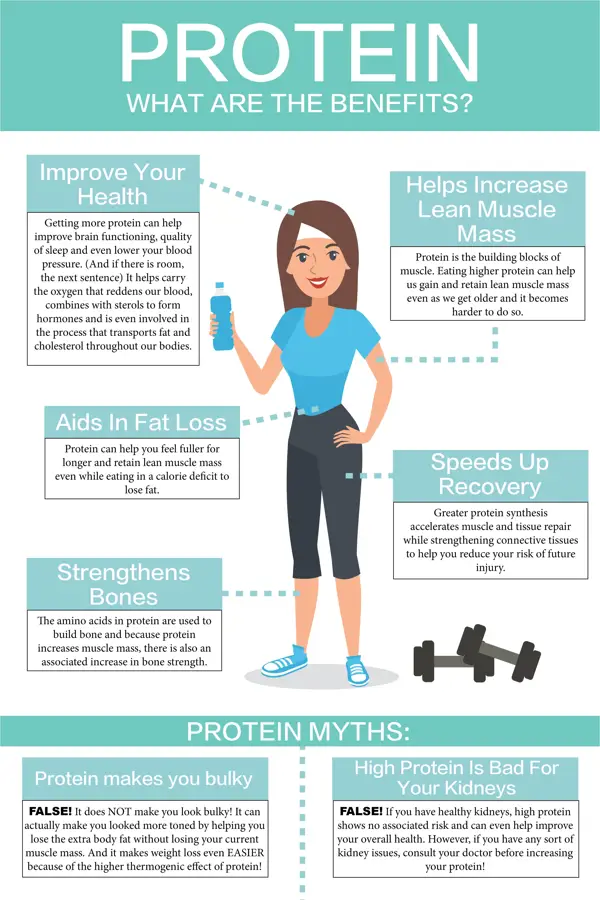
3. Determining Your Protein Needs
This section guides you through calculating your optimal protein intake based on factors such as body weight, activity level, and individual goals.
In order to effectively build muscle, it is important for females to consume adequate amounts of protein. To determine how much protein you should consume to support muscle growth, you can use a protein calculator specifically designed for females.
Protein Calculator for Females
A protein calculator takes into account various factors such as your age, weight, height, activity level, and fitness goals to provide you with an estimate of your daily protein requirements.
By using a protein calculator, you can ensure that you are consuming enough protein to support muscle growth while also taking into consideration your specific needs as a female.
Why Protein is Important for Muscle Building
Protein is made up of amino acids, which are the building blocks of muscle tissue. When you exercise and engage in strength training, your muscles undergo a process called protein synthesis, where new muscle proteins are created.
Consuming adequate amounts of protein provides your body with the necessary amino acids to support this muscle-building process. Protein also helps in muscle recovery and repair, especially after intense workouts.
Conclusion
In conclusion, determining your protein needs is crucial for females who want to build muscle. Using a protein calculator designed for females can provide you with a personalized estimate of your daily protein requirements, helping you optimize your muscle-building efforts.
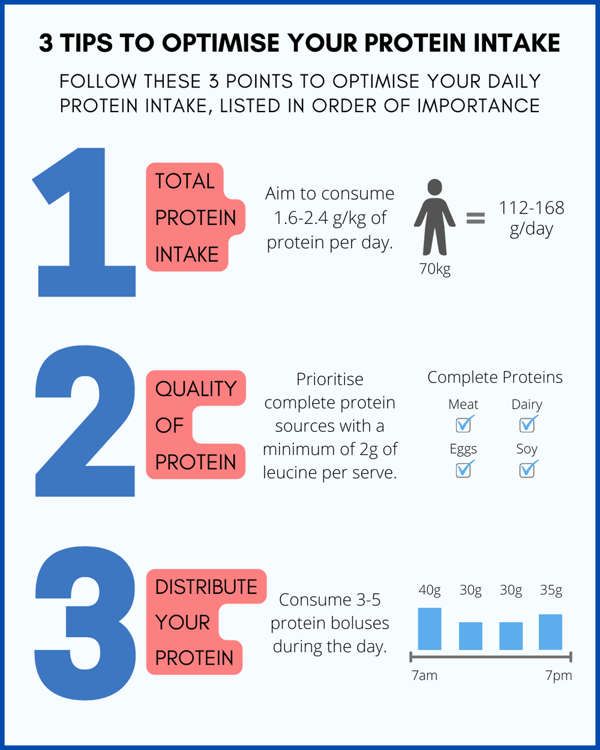
4. Protein Intake in Relation to Calorie Intake
Discover the importance of balancing protein intake with calorie intake to ensure you are providing your body with enough fuel to support muscle growth while avoiding excess weight gain.
Building muscle is not only about regular exercise, but also proper nutrition. One crucial element is protein intake, as it plays a significant role in muscle growth and repair. However, determining the right amount of protein to consume can be challenging. To simplify the process, you can use a protein intake calculator designed specifically for females.
The Importance of Protein Intake
Protein is essential for muscle development because it contains amino acids, which are the building blocks of muscle tissue. Consuming an adequate amount of protein supports the growth and repair of muscles damaged during exercise.
Calculating Protein Intake
To calculate your protein intake for muscle building, you can utilize a protein intake calculator. These calculators take various factors into account, such as weight, activity level, and muscle-building goals, to provide an estimated protein intake recommendation.
Calorie Intake and Muscle Building
While protein is crucial, it's important to remember that muscle building also requires an appropriate calorie intake. Consuming enough calories ensures that your body has the necessary energy to build and repair muscle tissue. If you consume too few calories, your body may not have the resources it needs for optimal muscle growth.
Using a Calorie Intake Calculator
Similar to protein intake calculators, calorie intake calculators are available to help determine the appropriate number of calories needed to support muscle building. These calculators take into consideration factors such as age, weight, activity level, and muscle-building goals to estimate your recommended daily calorie intake.
Protein intake is vital for muscle building in females, and calculating the appropriate amount can be made easier with the help of a protein intake calculator. Additionally, ensuring a sufficient calorie intake is crucial to support the energy needs of muscle development. By utilizing both protein and calorie intake calculators, females can optimize their muscle-building journey and achieve their fitness goals.

5. Protein Sources for Muscle Growth
Explore a variety of protein-rich food sources that can aid in muscle building, including lean meats, dairy products, plant-based options, and supplementation.
To build muscle and support muscle growth, it is essential to consume an adequate amount of protein. Proteins are the building blocks of muscles and play a crucial role in repairing and rebuilding muscle tissues. If you're a female looking to build muscle, it's important to calculate how much protein your body requires to achieve optimal muscle growth.
Protein Calculator for Muscle Growth in Females
Use the following protein calculator to determine how much protein you need for muscle growth:
Protein Sources for Muscle Growth
Here are some excellent sources of protein that can aid in muscle growth:
- Lean meats such as chicken breast, turkey, and lean beef
- Fish like salmon, tuna, and cod
- Eggs and egg whites
- Plant-based proteins like tofu, lentils, and beans
- Dairy products such as Greek yogurt, cottage cheese, and milk
- Nuts and seeds like almonds, walnuts, and chia seeds
Remember to incorporate these protein sources into your diet while keeping in mind the recommended protein intake from the calculator results. A balanced diet combined with regular strength training exercises will help you build muscle effectively.

6. Importance of Protein Timing
Timing your protein consumption plays a critical role in muscle recovery and growth. This section explains how to optimize protein timing throughout the day.
When it comes to building muscle, protein intake is essential, and it becomes even more important for women who aim to strengthen their bodies. Consuming an adequate amount of protein helps in the growth, repair, and maintenance of muscle tissue. However, protein timing also plays a crucial role in maximizing the benefits.
Understanding Protein Timing
Protein timing refers to the strategic distribution of protein intake throughout the day to optimize muscle protein synthesis and recovery. It involves consuming protein-rich meals or snacks at specific times to promote muscle growth.
1. Pre-Workout Protein Intake
To support muscle growth and prevent muscle breakdown during exercise, it is recommended to consume protein-rich foods or supplements before your workout. This ensures that your body has a readily available amino acid pool, which can be used during exercise to prevent muscle breakdown.
2. Post-Workout Protein Intake
Immediately after a workout, your muscles are in a highly receptive state for protein absorption. Consuming a protein-rich meal or shake within an hour after your workout can help kickstart the recovery process and maximize muscle protein synthesis. Aim for a combination of fast-digesting proteins, such as whey, and slower-digesting proteins like casein to provide a sustained release of amino acids.
3. Protein Intake throughout the Day
It's important to evenly distribute your protein intake throughout the day to maintain a steady supply of amino acids for muscle repair and growth. Dividing your protein intake into multiple meals or snacks allows for better protein utilization by the body.
4. Bedtime Protein
Consuming a source of protein, such as Greek yogurt or cottage cheese, before bed can help support muscle protein synthesis during the overnight fasting period. This helps minimize muscle breakdown and promotes muscle growth.
5. Total Daily Protein Intake
In addition to protein timing, it is crucial for women looking to build muscle to meet their daily protein requirements. A protein calculator designed specifically for females can help determine the ideal amount of protein you should be consuming each day based on your weight, activity level, and fitness goals. By meeting your protein requirements, you provide your muscles with the necessary building blocks for growth.
6. Consulting a Professional
When in doubt, it's always beneficial to consult with a registered dietitian or nutritionist who specializes in sports nutrition. They can provide personalized recommendations tailored to your specific needs and goals.
In conclusion, protein timing is an essential aspect of muscle building for women. By strategically distributing protein intake throughout the day and considering factors such as pre and post-workout nutrition, total daily protein intake, and bedtime protein, women can optimize muscle protein synthesis and enhance their muscle building results.
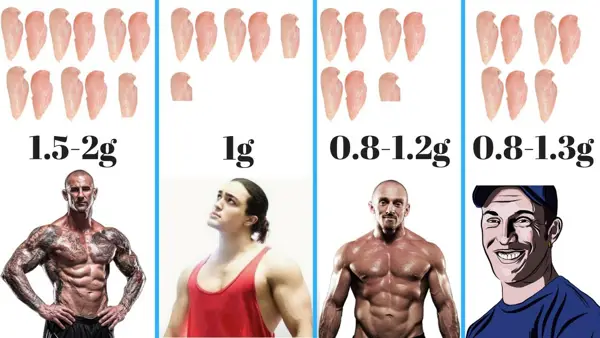
7. Protein Supplements for Muscle Building
Learn about protein supplements and how they can complement your diet to meet your protein needs, including different types of supplements available and their pros and cons.
Protein supplements are a popular choice for individuals aiming to build muscle, including females. In order to determine the amount of protein needed for muscle building, you can utilize a protein calculator designed specifically for females.
A protein calculator is a useful tool that takes into account various factors such as your weight, activity level, and muscle building goals. It provides you with an estimated protein intake required for muscle growth.
When considering protein supplements, it is important to consult with a healthcare professional or a registered dietitian to ensure that your protein intake aligns with your specific needs and goals. They can guide you on selecting the right protein supplements and offer personalized advice on how to incorporate them into your diet.
Remember, protein supplements should not replace whole food sources of protein. They should be used as a supplement to support your muscle-building efforts. It's crucial to maintain a well-balanced diet that includes a variety of nutrient-dense foods alongside protein supplements.
Always follow the recommended dosage instructions provided by the protein supplement manufacturer. Taking excessive amounts of protein can potentially lead to adverse effects on your health. Moderation is key when it comes to supplement usage.
In conclusion, protein supplements can be beneficial for females who want to build muscle. Using a protein calculator specifically designed for females can help determine the right amount of protein intake for your goals. Remember to seek guidance from professionals, maintain a balanced diet, and follow recommended dosage instructions.
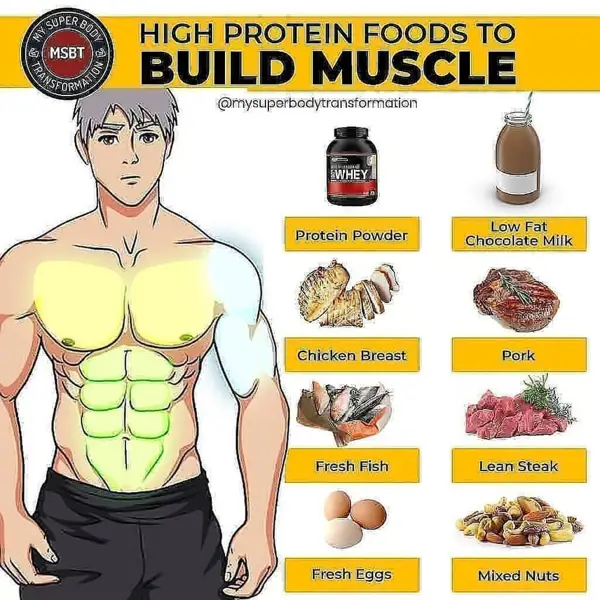
Key Takeaways
- Protein intake is vital for females looking to build muscle as it supports muscle recovery and growth.
- Calculating your optimal protein needs involves considering factors such as body weight, activity level, and goals.
- Balancing protein intake with calorie intake is crucial to achieve muscle growth without excessive weight gain.
- Various protein sources, including animal and plant-based options, can contribute to muscle building.
- Timing protein consumption throughout the day can optimize muscle recovery.
- Protein supplements can be used as a convenient option to meet protein needs but should not replace a balanced diet.
FAQ
1. How much protein do I need to build muscle as a female?
Individual protein needs may vary, but a general recommendation for females aiming to build muscle is consuming around 0.8-1.2 grams of protein per pound of body weight.
2. Can I solely rely on protein supplements for muscle building?
No, protein supplements should not replace a balanced diet. While they can help meet your protein needs, whole food sources provide additional essential nutrients necessary for overall health and muscle development.
3. Is excessive protein intake harmful?
Consuming high amounts of protein for an extended period may put excess strain on the kidneys. It is important to consult with a healthcare professional before significantly increasing your protein intake.
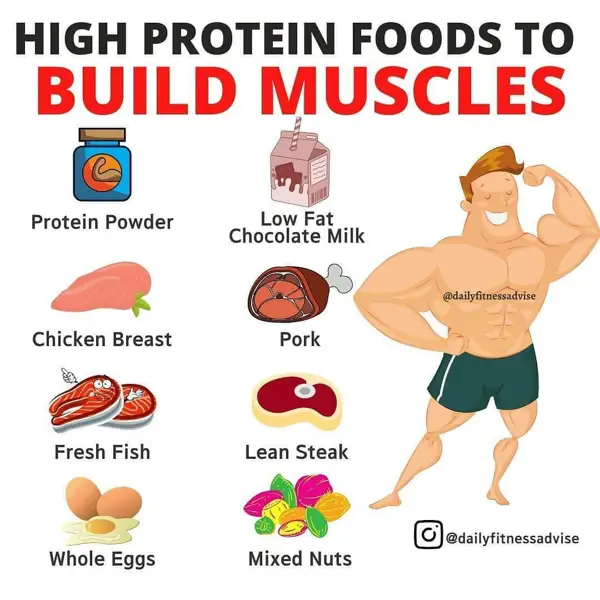


Recent Comments